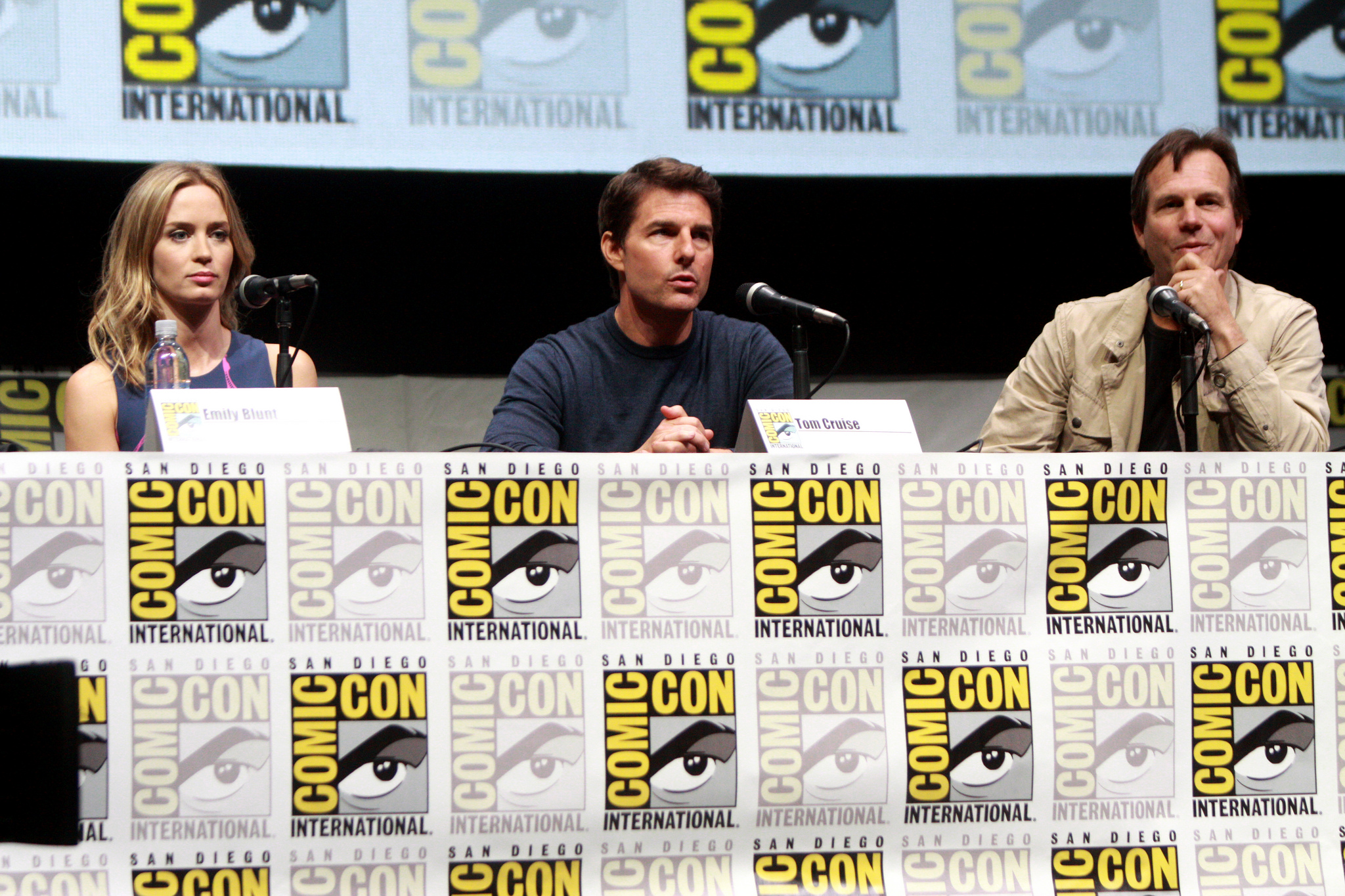Ever play a video game and get to a level that just seems impossible to beat? Everyone who’s played a game has been there. You keep dying and starting over, each time getting a little farther (and angrier). You begin to memorize where every enemy appears and are ready for them. And then one day, after playing through it so many times that you know each step instinctively and start to hate the sight of that stage, you finally beat it. And for a brief moment it’s the greatest feeling of satisfaction imaginable.
Well, Edge of Tomorrow plays out this concept onscreen. Only it doesn’t have the stark, intense emotional highs and lows because the viewer isn’t playing, only watching. The “player” (or protagonist; I'll drop the metaphor now because the plot has nothing to do with video games) is Tom Cruise, an American military officer in a not-too-distant future where most of Europe has been overrun by aliens called Mimics. His snotty entitlement gets him demoted to the first wave of the human invasion of Europe through the beaches of France (think D-Day with soldiers wearing robotic armor). The invasion fails and Cruise is killed quickly, only to awaken back at the invasion’s launch base in London 24 hours earlier. Apparently, the Mimics can travel back in time a day, and he’s somehow harnessed that power. He uses it to relive the day over and over, training and devising a plan with a hero soldier played by Emily Blunt, who also once had this power.
The obvious observation, the one that every synopsis and review seems to be making, is that the movie is like a militaristic sci-fi Groundhog’s Day. That comparison is more apt than just the basic premise. Just like Bill Murray in the classic comedy, the film plays Cruise’s repeating experiences—screwing up in all manner of ways, wowing people with his knowledge of future events—for laughs much of the time. More than for anything else, actually. It’s surprisingly much funnier and less substantial and serious than the storyline would suggest, or even than your regular brooding action picture. But when the film gets to the scenes of excitement, it uses jump cuts to indicate repeatedly resetting time. Once in a while it’s hard to tell if what’s happening is happening for the first time or not, but mostly the film has a good and clear grasp on its time games. And it doesn’t make us sit through endless repetition of the same experiences unless there's a good reason for it, thankfully.
It all makes for a pretty good time, but it’s nothing I’d call exceptional. Even with the fun time travel structure and cool soldier suits, a lot of the battles are of the basic shaky-cam-and-explosions variety (and the beach-storming in the suits never lives up to the massive scale suggested in the initial building shots). The Mimics are rather unimaginative mashes of bio-mechanical tentacles and light. But my biggest gripe is that the final act settles for a rather standard action sequence, instead of taking advantage of its premise to give us something really imaginative. The movie uses its premise to great effect up until then, but disappointingly, there’s no mind-blowing sci-fi payoff like, say, Cruise’s 2002 film Minority Report.
But, Edge of Tomorrow is still a lot of fun. Cruise still has a movie star’s charisma to carry it, and Blunt and the supporting cast are up to the job, especially Bill Paxton, hilarious as a platoon leader. It’s a good B-movie with an A-level cast and production values.

